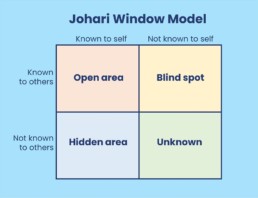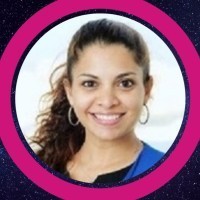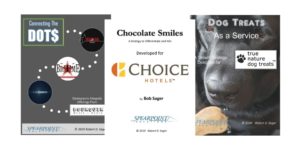Do you seek out opportunities for personal development or do you wait for them to come to you?
Personal development involves exploring the many ways in which we can improve ourselves, be it learning new skills, gaining knowledge, or changing behaviours that do not serve us. In order to achieve personal development, it is essential to be aware of one’s self, and as Aristotle put it, “to know oneself is the beginning of all wisdom.”
Self-awareness includes our ability to understand our thoughts, our emotions, our behaviours, and our underlying beliefs. Cultivating self-awareness enables us to identify our strengths and weaknesses, and consequently identify areas that need improvement, as well as understand how our actions impact others.
Without self-awareness, we operate ‘blind’.
Why?
Advertisement
Is your business life FUN – or stressful?
Our Strategies Subscription will help you easily beat the competition, enhance your profits and have more FUN.
Get access to three strategies at no charge by clicking here or on the image below.
Because we are oblivious to areas that need improvement, and/or fail to understand why certain behaviours or patterns persist. An example would be Mary who binge-eats when she is feeling stressed; or Jacob who chain-smokes when he is feeling overwhelmed at work.
If Mary and Jacob could reflect on their experiences, they would observe that certain emotions and feelings cause certain behaviour. Soon enough, they’d identify the patterns and triggers that lead to these poor habits. They could then make changes that would improve their overall well-being and success.
Let’s assume that Jacob is a Project Manager. When Jacob takes steps to become more self-aware of his strengths and weaknesses, he can be more honest and transparent with his team. He can admit when he doesn’t have all the answers, and confidently seek input from others. This inevitably, engenders trust amongst his team.
Building trust in the workplace often requires that we share ‘appropriate’ personal information with others, and a great tool to help us do this is the ‘Johari Window’ – which is named after its inventors – Joseph Luft and Harry Ingham.
The ‘Johari Window’ helps us explain our inner world by dividing our self-awareness into four areas, much like four distinct panes of a window, and includes two axes as shown below:

Advertisement
Is your business life FUN – or stressful?
Our Strategies Subscription will help you easily beat the competition, enhance your profits and have more FUN.
Get access to three strategies at no charge by clicking here or on the image below.
The four panes represent the four areas as follows:
Open Self: Also called the ‘Arena’ and represents information about you that is known both to you, and to others.
Blind Self: Refers to the zone that is known to others, but not by you – your ‘Blind spot’.
Secret Self: Is information that you hold close to your chest; It is known to you, but not to others.
Unknown Self: Is information that neither you, nor others know.
There are three key premises behind this tool:
We should work to increase our ‘OPEN’ area by decreasing the other areas through shared discovery.
We can build trust with others by disclosing personal information about ourselves (sharing from our ‘SECRET’ self) self disclosure
By being open to receiving feedback from others, we can learn more about our ‘BLIND SPOT’.
As we develop larger ‘OPEN’ areas, we gain a deeper understanding of ourselves. We become more aware of our abilities, feelings, behaviours, and limitations, and this helps to improve both our personal and professional relationships.
Our ‘BLIND’ quadrant represents unknown characteristics and elements. You may not know that you’re a great writer until someone points it out you. In the case of our Mary, we know she binge-eats when she is stressed. However, when Mary spent time digging deeper and/or seeking feedback, she comes to realize that stress is just a surface issue; Deep down, Mary has low self-esteem which then leads her to binge-eat to cope with feelings of inadequacy. A large blind area could signify denial, or even that those close to us are keeping us ‘in the dark’ because they fear our reaction.
To survive in the world, we often withhold our ‘SECRET SELF’ comprising our private thoughts and feelings, because we do not want to feel embarrassed or vulnerable. We are afraid of being rejected, hurt, or ‘found out’. However, by revealing ‘select’ parts of ourselves, we not only become more self-accepting, but we also improve the quality of our relationships and build trust. self revelation
Finally, our ‘UNKNOWN SELF’ represents both things that are unknown to us and others. When he began his career as a Project Manager, Jacob discovered that that he is great at asking deep and insightful questions. In the past, these abilities were untapped, and neither he nor anyone else was aware of them. When we gain new skills, try new things, and step outside of our comfort zones, we can uncover a whole new world of possibilities.
Here are a few things we can do to increase the size of our ‘OPEN’ quadrant:
Invite Feedback from others.
Be Transparent – Share your thoughts, feelings, and ideas with others to build trust.
Listen Actively – Keep an open mind and resist being judgmental.
Take More Risks – Step out of your comfort zone and do the things that scare you.
Seek Personal Growth – Through self-reflection, journaling, mindfulness activities like meditation.
The key to personal development is to keep questioning, and to always stay open to growth and learning.

Cynthia is a holistic life and career coach based in Dubai, UAE. She has spent over 15 years working in the Hospitality sector in different parts of the world and is passionate about all things pertaining to self-development, leadership development, holistic personal development, the impact of culture, and how to cultivate incredible people skills. Cynthia thrives on helping people leverage their talent, skills, and expertise to lead their best lives.
Email: bespokeresumes@aol.com
Header Image Credit: Tima Miroshnichenko on Pexels.com


